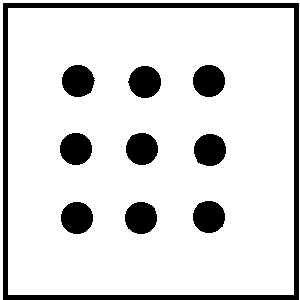Students aged 7 - 11 across the UK are invited to participate in an interactive survey titled Life’s Big Questions. Created by Dreamachine, a one-of-a-kind programme setting the minds of the UK public alight with its magical journey to explore the extraordinary potential of your mind, the online survey is hosted by Martin Dougan (CBBC Newsround), together with globally renowned neuroscientist and author Anil Seth and philosopher Fiona Macpherson. The survey is an interactive exploration of the amazing power of the human brain and how we each experience the world that places young people’s perceptions at its core.
Life's Big Questions connects children’s voices across the four nations, celebrates their unique differences, and gives a student voice perspective on what matters to them most. Involve your students in the unique opportunity and let their thoughts and perceptions on the human mind be heard.
Rooted in the United Nations Convention on the Rights of the Child, Life’s Big Questions invites children to explore big scientific and philosophical questions about how we experience the world and why our senses aren’t as simple as they seem. Centred around five ‘big questions’ such as ‘Can I believe everything I see?’ or ‘ Are colours only in my mind?’ the survey gives voice to how young people experience the world around us and their connection with others.
Created for flexible learning and easy for teachers to build into their lessons or enrichment sessions, the pupil facing website will host a short video introducing each question. There will then be several fun examples illustrating the question, and a simple question that pupils can answer. Pupils that take part will then be able to see how their answers compare with children across the UK – encouraging them to consider the ways we are similar - and what makes us unique.
Each question includes Q&As with world-leading experts in science and philosophy, explaining why we experience the world the way we do. Simple step by step activities, including audio clips and optical illusions, will guide a whole class or individual pupil through the survey. The survey can be completed as a whole class or individually.
Professor Anil Seth says: “I believe that children are intrinsically curious about consciousness and perception - about how we each experience the world, and why we have conscious experiences at all. By engaging with children about these fundamental topics, we’ll be able to cultivate this curiosity, build greater understanding and empathy, and foster greater wellbeing too - because understanding how we’re each different on the inside is an important part of bringing us together and forging connections. And we’ll also hope to discover fascinating new data about how children across the country experience their worlds.”
Fusing science with arts, the Dreamachine themes offer compelling classroom investigation on the power of the human mind, our amazing brains and the big questions of perception and consciousness - our sense of self, how we see the world and how we connect with others. All associated resources are linked to curricula across England, Scotland, Wales and Northern Ireland.
Life’s Big Questions is launched as part of the Dreamachine Schools programme, a major programme developed by A New Direction in partnership with the British Science Association, UNICEF UK and We The Curious, commissioned as part of UNBOXED: Creativity in the UK.
Steve Moffitt, CEO of A New Direction, said: “We launch Life’s Big Questions as schools come to the end of yet another challenging academic year; schools need to manage staff capacities, learning loss for students, and the mental health and wellbeing of both pupils and teachers. At A New Direction we have created this suite of high-quality learning assets and resources, a programme of CPD and a set of light touch time bound exercises which all address big conceptual questions that feel relevant and useful for schools at this present time.”
The first 500 schools to take part and register will have the opportunity to win in-school experiences for their students, including an online Q&A with leading scientists or philosophers and a science themed workshop. Sign up today.
John Dewey, probably the most influential of all American philosophers, was born in Vermont in 1859. After graduation from the University of Vermont he received a PhD from The John Hopkins University and taught at a number of major universities, gaining an international reputation for his contribution to the pragmatic approach to philosophy (Dewey, 1938).
If you are unfamiliar with the ‘9 dot problem’ (or have forgotten it) then, before reading this article, I would urge you to attempt the puzzle first:
The 9 dot puzzle:

Task: cover all 9 dots with four (or less), straight, continuous lines without tracing over the lines. Do not read on until you have had a go. The solution is at the end of the article.

A community-driven platform for showcasing the latest innovations and voices in schools
Pioneer House
North Road
Ellesmere Port
CH65 1AD
United Kingdom